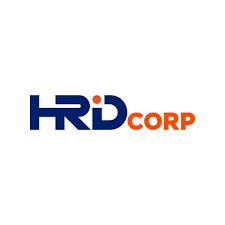Niosh mulls expanding ‘Safety Passport’
Borneo Post Online, 4 October 2013

INTERESTING: Lee sharing with the reporters about his journey with OSH in his book since he was appointed as a Board Member of Niosh in 1992. He was met at the closing ceremony of the OSH, seminar for media organised by Niosh Sarawak at Pullman Hotel. — Photo by Chimon Upon
KUCHING: National Institute of Occupational Safety & Health (NIOSH) is mulling over expanding its ‘Safety Passport’ training to all media organisations throughout the country, including Sabah and Sarawak.
Niosh chairman Tan Sri Lee Lam Thye said Safety Passport, which is a series of training programmes on occupational safety and health induction training designed and customised for specific industry, had been introduced to other industries like Telekom, Tenaga Nasional Berhad and oil and gas companies.
“This time we want to extend the programme to media personnel but very strong support from all the various media organisations in the country is necessary to make it possible and we welcome them to consult us on the matter and we are more than prepared to help them conduct the induction training for their staff,” he said.
He stated this when closing a first ever seminar on “OSH (Occupational Safety and Health) for Media” at a leading hotel here yesterday. The event was organised by NIOSH Sarawak Region in collaboration with the state Social Security Organisation (Socso) and state Department of Safety and Health (DOSH).
“The programme (Safety Passport) provides for occupational safety and health (OSH) awareness, training and assessment so as to ensure that the target group of any industry acquires the necessary and appropriate OSH knowledge required for their jobs and fulfil the requirements of the legislation and companies policies.
“Its main objective is to reduce accidents while media personnel are on their jobs. It also aims to reduce unsafe acts and conditions, near-misses and increase productivity,” he said.
He said in addition, the programme also helps to relieve companies from the chores of training their staff and employees whereby it also provides opportunity for an independent and credible assessment by NIOSH as a third party besides providing standard training programme for the industry.
“I am sorry to say here that OSH knowledge among the media community is still very minimal and therefore more is needed to be done to enhance level of awareness on the importance of safety and health at their workplace.
“Media personnel need to be educated on how to adapt to all types of situations as well as to manage the various risks that they are exposed to at their workplace while doing news coverage and we are more than prepared to help as our CSR (corporate social responsibility),” he added.
He cited the tragic incident involving a Bernama TV cameraman who died while doing news coverage in war-torn Somalia in 2011 as a good example that the profession can also be subjected to high risk.
“The tragic incident is still etched in our minds and reminds us the importance of ensuring the safety of our media personnel whether they are serving in the country or abroad,” he noted.
He pointed out that newsmen and newswomen have to be concerned about their personal safety not only in war zones but must be fully conscious of the various hazards and risks while doing coverage on disaster like fires, floods, landslides and other natural hazards.
“In many cases, journalists and photographers who have been told to get scoops (exclusives) might not be fully aware of the risks and dangers they are exposed to when attempting to do their report at the scene. Many are not aware of the importance of occupational safety and health until an accident, injury of fatality occurs,” he said
In this respect, he urged media organisations to seriously consider providing opportunities to their employees, journalists, photographers and cameramen to understand the inherent risks they may face while on duty.
He said this in fact was clearly stated in Occupational Safety and Health Act (OSHA) 1994 Section 15 (2) (c) that employers were duty bound to provide training and information to all level of their workforce on matters with regards to occupational safety and health.
“The law is already there except that it is not being fully enforced but whatever it is, we encourage and urge all industries and companies to do something about it,” he said.
At yesterday’s seminar attended by representatives from various media organisations here, three papers were presented, each by State Socso director John Riba Marin, state DOSH director Mohd Hatta Zakaria and Niosh officer Raemy Md Zein.















